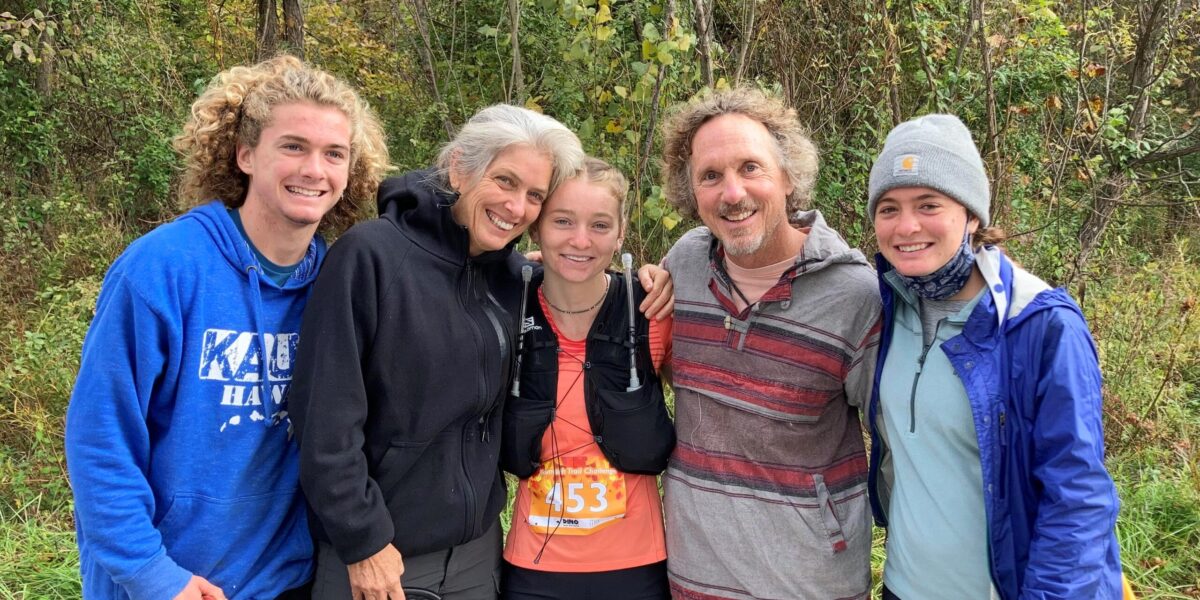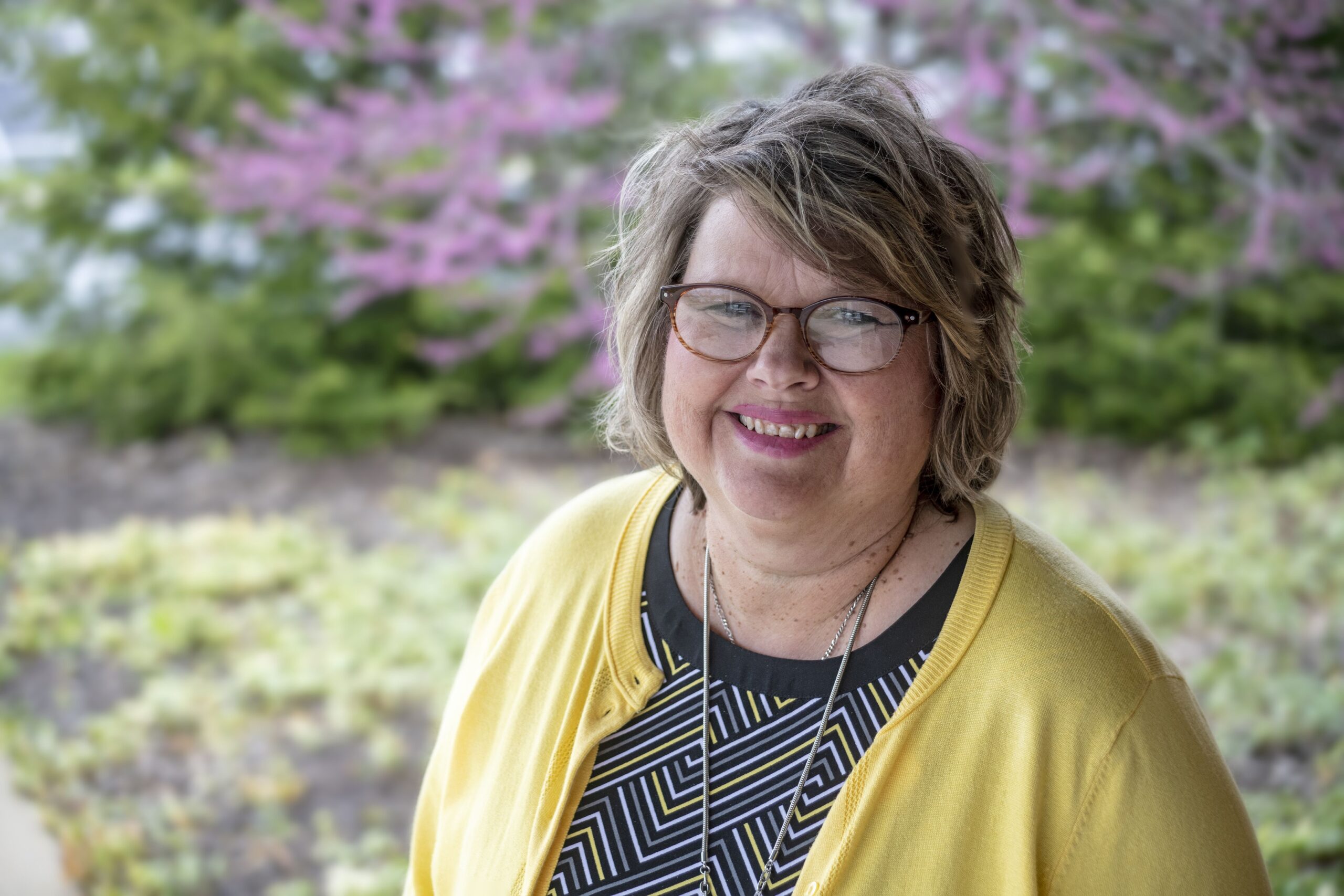NEWTON, Kansas (Mennonite Mission Network) — Because of a COVID-19 disruption to their typical Mennonite Mission Network service plans , Jane and Jerrell Ross Richer are learning that there is more than one way to do two-way missions.
Even as they’ve been derailed from the usual cycle of their ministry, the Ross Richers have made some new discoveries. Because of a longer-than-normal stay in the United States, caused by the COVID-19 pandemic and a family medical situation, they’ve forged deeper relationships with Indigenous people in North America. These connections have become an important extension to their relationships with Indigenous people in the global south, the Ross Richers recently shared from their Goshen, Indiana, home.
Since 2015, the Ross Richers have related with Indigenous communities in the Ecuadorian rainforest and with Ecuadorian Anabaptist churches, through the Ecuador Partnership, which includes Central Plains Mennonite Conference, Iglesia Cristiana Menonita de Colombia (Mennonite Christian Church of Colombia) and Mission Network. This part of their ministry typically takes place January-June.
The Ross Richers normally return to Goshen, Indiana, for the remaining six months of the year, and Jerrell Ross Richer teaches at Goshen College. They also share what they’ve learned from their Ecuadorian Indigenous brothers and sisters with their own congregation, Waterford Mennonite Church, which is the core of their Ministry Support Team (MST). Additionally, they visit other supporting congregations throughout the United States during this time.
This past May, Jerrell Ross Richer developed a connection to the Potawatomi and Miami peoples, while teaching a class on Indigenous economies. Because of the pandemic, the class could not visit tribal lands. Instead, members of the Pokagon Band Potawatomi, Citizen Potawatomi and Miami Tribe of Oklahoma spent time with the students at Indiana Dunes National Park and other nearby public lands, to share their stories, past and present.
"That experience signified a big pivot for us and became a silver lining to the pandemic, as it turned our attention to Indigenous people in North America," he said. "In learning more about these groups, we are identifying some similarities with their challenges, including land issues."
The Ross Richers are learning that land is at the heart of the Indigenous way of life. "We’ve learned in the global south that Indigenous people aren’t asking for the kind of engagement provided by traditional missionaries anymore," Jane Ross Richer said. "They tell us that if they lose their land, they lose themselves."
Examples of land issues include the destruction of rain forests in Ecuador and the injustices faced by Native Americans who have been displaced from their tribal lands, they said. Though these groups experiencing such losses live thousands of miles apart, the wounds to their souls and their ways of life are very similar.
The Doctrine of Discovery inflicted these wounds, Jane Ross Richer explained. The doctrine was a spiritual, political and legal justification that has been used for centuries to systematically dispossess Indigenous lands and facilitate their transfer to colonizing or dominating nations.
In North America, it has involved the forced displacement of Native Americans, from their ancestral homelands to other regions in North America. The refugee marches often led to thousands of deaths during journeys that were hundreds of miles long, through rough weather and terrain.
"God is currently calling us to repair broken relationships with Indigenous people, right here in North America," Jane Ross Richer said. Justice issues to be addressed, she said, include how the construction of oil pipelines are destroying native lands and intensifying climate change.
Jerrell Ross Richer added, "Even though many Indigenous people now have jobs off their reservations, many of them are striving to restore their land and their customs — including growing native rice. That requires clean water and land that is not bulldozed and paved. It also requires the restoration of the native habitat, which gets disrupted with the laying of new pipelines."
Jane Ross Richer is teaching a Sunday school class on The Land is Not Empty, by Sarah Augustine, at Waterford Mennonite Church. The book explores how the Doctrine of Discovery has had a devastating effect on Indigenous people around the globe; and calls it for an advocacy of forming right relationships with God, others and the earth.
"[Sarah Augustine] helps us understand that what has been done in the name of Christ needs to be undone in the name of Christ," Jane Ross Richer said.
Trusting God’s mysterious ways
Lynda Hollinger-Janzen, a writer at Mission Network and the Ross Richers’ MST’s personal care coordinator at Waterford, said she affirms their positive, faith-filled attitude. She is walking with the Ross Richers in their advocacy work, as are the other MST members.
"Being able to pivot in the face of uncertainties is exactly who [the Ross Richers] are and why they have been so good at mission in Ecuador," Hollinger-Janzen said. "They can flex and aren’t the kind of people who have to be in control. They know how to listen and how to discern what the spirit is saying."
Ursula Hess, their MST prayer coordinator, agrees with Hollinger-Janzen. She said that the Ross Richers’ ability to adapt reflects their open-hearted and trusting faith.
The Ross Richers used the disruption caused by COVID-19 to study, during the six months of 2021 when they had planned to be in Ecuador. For the first four months, they lived in Hawaii, near Jane Ross Richer’s brother and one of their supporting churches. During that time, they took online courses from the Canadian Institute of Linguistics and the North American Institute for Indigenous Theological Studies. The six-hour time difference meant that classes scheduled for the afternoons and evenings in North America happened during their normal working day. That’s when the Ross Richers’ minds were fresher, a real blessing when studying articulatory phonetics and Indigenous theology, Jerrell Ross Richer said.
"We talk often in our MST about all the silver linings that have presented themselves in this situation," Hess said. "We have seen God at work in so many ways, including allowing for the Ross Richers to do an academic sabbatical — studies that can help bring depth to their work in the global south and north.
"We believe — as the saying goes — that ‘God has got this.’ Some folks may be wondering what our MST is really supporting during this time. But we believe we are supporting what happens when God’s people follow God’s ways, even when they don’t follow the trajectory we understand totally."
The Ross Richers believe that the trust required during this time — along with the desire to grow in respectful mutuality with all people — is characteristic of Mission Network’s way of doing mission.
"We’ve always sensed that Mission Network is a very innovative mission agency, and that’s the reason we engaged with the agency in the first place," Jerrell Ross Richer said. "It has been inspiring to us — the way of walking alongside others in accompaniment.
"We don’t even know the next thing that will be happening for sure, but we do have a sense of walking alongside others, as, together, we find our way."
Note: If you would like to share a financial gift to support the ongoing work of mission workers, such as the Ross Richers, then consider donating to Mission Network on Giving Tuesday, Nov. 30. Your gift supports hospitality in mission across the street and round the world. Visit our website to get started.








